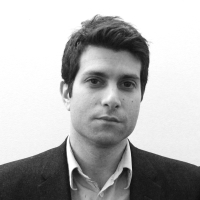Amid ongoing protests and violence in Ferguson, Missouri, Gov. Jay Nixon ordered the National Guard into the area after lifting a curfew in a bid to restore “peace and order.” But even advocates of using the National Guard like retired Gen. Russel Honoré, who commanded military forces during Hurricane Katrina, say an overly aggressive police response has contributed to the escalation of violence in the area.
The National Guard, whose troops arrived Monday in the suburb of St. Louis, was created to serve under both state and federal authority. (Disclosure: The author is an officer in the New York Army National Guard.) Acting under federal orders, soldiers are prohibited from policing U.S. citizens, but that’s not the case in Ferguson, where the Guard is acting under state orders and can operate in a law enforcement capacity.
For the moment, the Guard’s role seems designed to limit interaction between law enforcement and civilians in Ferguson.
Nixon said in a statement Monday that the National Guard troops he called up would operate within a narrow scope. Guard soldiers will “provide protection, and ensure the safety of our Unified Command Center, which was the target last night of a coordinated attack,” he said. “The Guard will concentrate its resources on carrying out this limited mission.”
The National Guard force will be commanded by Army Gen. Gregory Mason but operate “under the direction of Colonel Ron Replogle of the Missouri State Highway Patrol,” the governor said. Guard soldiers in Ferguson will work “under the overall command of the Missouri State Highway Patrol.”
No details were provided about the size of the National Guard force or what types of units were being sent to Ferguson, but Nixon “has at his disposal something many other governors would love to have,” Gen. Honoré told The Daily Beast.
The governor has “two battalions of military police in the Missouri National Guard,” Honoré said. “He has a lot of things going for him to be able to pull together troops that are prepared to deal with any tasks he wants them to do in terms of law enforcement inside of state law.”
Missouri’s military police battalions likely have many experienced veterans from deployments to Iraq and Afghanistan, but it’s unclear how much preparation they have to work inside the United States policing their fellow citizens. Aiding in domestic civil unrest is one of the doctrinal missions of the military police, but in many units it has taken a back seat in recent years to training for deployments overseas.
“That’s part of why they exist in the state,” Honoré said of the military police, “to provide military support to civil authority. Dealing with civil disobedience is one of the tasks.”
Since the August 9 shooting of Michael Brown, an unarmed black teenager, sparked the protests and looting in Ferguson, a number of military veterans have criticized the military approach taken by local police. “In terms of its equipment, organization, and deployment methods, the Ferguson force looks more like an infantry or military police company in Iraq,” Phillip Carter, a former military police officer and Iraq veteran, wrote in The Daily Beast. “Moreover, to a police force with such a military arsenal, every problem potentially looks like one that can be solved with military force.”
Honoré offered a similar assessment of the initial police response in Ferguson: “I don’t understand police pointing their weapons and looking through their sights into a crowd of civilians, and I don’t understand sending a SWAT team to the front line of a civil disturbance. They weren’t even dressed in riot control gear, they were dressed in assault gear like they were assaulting a building.”
“Yes, there were some people shooting,” Honoré said. “Yes, that threat was there, but from what I saw their tactics were in more of an assault mode than a crowd control mode.”
Now, with military forces stationed in Ferguson, albeit limited to defending the police command post for the time being, the balance has tipped. What once had the appearance of a military operation now has real soldiers on the ground.
The hope for people like Honoré and others who believe the National Guard is the best way to achieve peace in Ferguson is that the troop’s presence will help defuse the situation.






